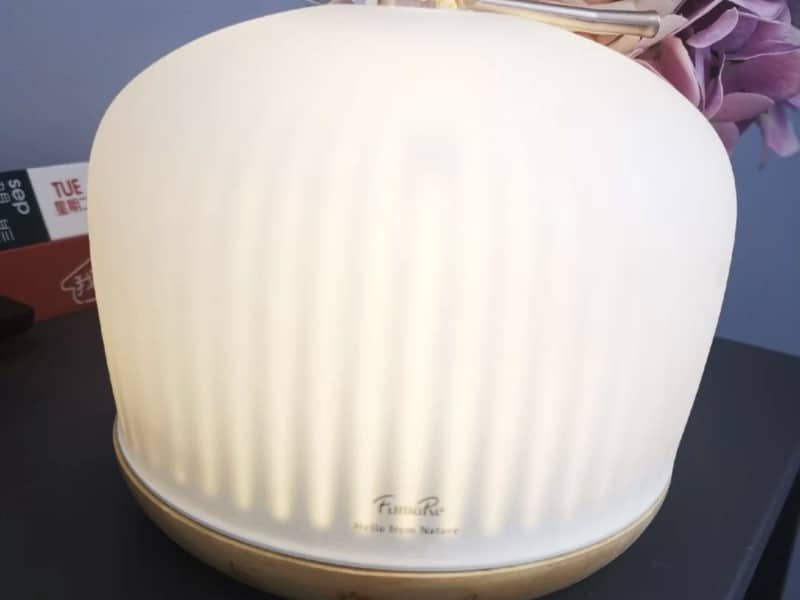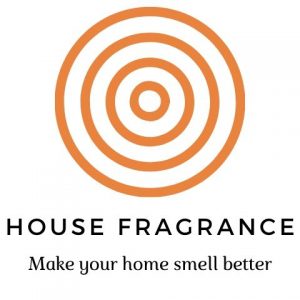You just bought an oil diffuser for your home. The pack recommends using distilled water, but you only have tap water. “Is it safe to use tap water?” You wonder.
Different kinds of oil diffusers work differently. Most diffuser manufacturers recommend using tap water in their ultrasonic diffuser. But, low quality tap water may damage your diffuser or make it difficult to clean. When you find out that there is such a situation using filtered water instead.
Diffusers are becoming increasingly fashionable owing to the numerous advantages of diffusers. They can be used for aromatherapy, keep the environment fragrant, or diffuse essential oil into the air. This device breaks down scented oils, disperses into the surrounding air, and provides a pleasing aroma.
However, before we delve deeper into the topic, let us define what an oil diffuser is and why it uses tap water.

Tap Water Vs. Diffused Water: Who Wins?
A debate arises whenever the difference in quality between tap water and diffused water is questioned. Products guidelines in most diffusers recommend that you use tap water because it contains natural minerals that assist the essential oils in diffusing into a vapor better than distilled water.
Others promote the use of distilled water. So, who wins the debate?
The Distilled Water Argument
In Support of Distilled Water
Science tells us that distilled water is the purest there is. Proponents claim that it provides the best results when diffusing essential oils because it can hold on to more natural minerals that help raise the humidity in your room.
Moreover, there is no risk of inhaling impurities from the water vapor.
Not for Distilled Water
A significant downside is brought to light by some manufacturers. They claim that distilled water can be damaging to specific diffusers and can damage their internal molds. This is attributed to the fact the mineral-less water doesn’t evaporate as well.
Another concern (from the consumer’s perspective) is that distilled water is super expensive to use in a diffuser.
The Tap Water Argument
In Support of Tap Water
On the other hand, perhaps the most notable upside has to do with availability. Anyone can access tap water, but it can be challenging to find distilled water in your area. This is thus a pocket-friendly option.
Nevertheless, the natural minerals found in tap water cleanse the machine and help diffuse the fragrance into the air more efficiently.
Tap water is said to conduct electricity better than distilled water can. This can help power specific diffusers so that they can work better. Though not very noticeable, in the long run, you save a substantial amount on power bills as any diffusers set in the home consume less energy to vaporize the oils.
Not for Tap Water
As for the argument that you can cause mold damage with tap water, anecdotal evidence reveals that it is on a much lower scale than distilled water. But by what extent, we can’t say for sure.
It is also challenging to determine which minerals are contained in tap water and impurities and treatment chemicals. Due to this, diffusing tap water in your diffuser may discharge unsafe chemicals, like fluoride, which can cause respiratory and skin issues.
Others say that using tap water can be pretty labor-intensive due to residual salt build-up in the diffuser. You have to clean the diffuser more regularly. Luckily, if you live in a place with high-quality tap water, you can avoid such issues.
Filtered Water: Is it a Viable Alternative?
Why is there not much talk of filtered water? If you filter tap water in your home, you might be asking whether it is safe to use in your diffuser. Since the treatment process can only remove certain minerals from filtered tap water, it can still be harmful to your diffuser.
The low mineral content, combined with the water’s boiling temperature of greater than 100°F, allows it to turn into steam more easily than distilled water. But because there’s less mineral content, it needs minimal maintenance than tap water.
Factors To Consider Before Using Tap Water in Your Diffuser
Before you add tap water into your diffuser, you must make some considerations.
What Does the Manufacturer Recommend?
Inside every pack, there’s an instruction manual that can give you insight into whether it’s safe to use tap water or not. If the manufacturer states that tap water isn’t safe for use in the diffuser, then you shouldn’t use it because there’s a possibility it can damage the machine.
The Quality of Tap Water
Depending on the source of your tapped water, the mineral composition will vary from place to place. The same applies if you’re getting from a water treatment facility nearby. There can be some undesirable elements that can come from the water.
Therefore, you should check your tap water for impurities before use. You can do this with a TDS meter or conductivity test kit. If the reading on your meter is within acceptable ranges, then yes- you can use it in your diffuser.
You should do this, especially if you get limescale build-up in your kettle, as the deposit indicates the presence of compounds.
Examples Of Diffusers That Use Tap Water
Some diffusers need specific types of water. Here are our top choices for use with tap water.
1. ZAQ LiteMist Aromatherapy Diffuser
- Natural outer shell crafted from exotic bamboo wood, inspired by the rich green of jade and evergreen grass
- LiteMist aromatherapy system silently mists essential oils into your space
- As a midsized diffuser (3.6′′ x 6.6′′), it will fill your living room, bedroom, hotel room, spa reception, locker room or salon with fresh,...
- Energy efficient, this 100 ml capacity machine runs for up to 6 hours in continuous mode or 12 hours in interval mode before needing to be refilled ...
- ZAQ Bamboo is BPA free and made of safe, healthfriendly materials
If the eco-friendly design featuring a bamboo outer shell does not get you, its energy efficiency will.
This diffuser can run for up to 6 hours on a single charge- the same can you can get from some more powerful plug-in models. Also, it’s easy to use and clean up and comes with an adjustable mist setting.
2. Innogear Essential Oil Cool Mist Humidifying Diffuser
- Compact Size for Space-saving: Diffuser is powered by included AC/DC adapter. Without occupying much space, you can easily place this palm sized...
- 2 Misting Modes: You can set the deffusor to intermittent mist (6-8 hrs working time) that diffuser mists and pauses every 30s, it goes for almost the...
- PP Material and Cool Mist: Using PP material, this diffuser disperses a comfortable stream of room-temperature mist, which provides ideal coverage for...
- Romantic Mood Light: InnoGear essential oil diffuser has 8 soothing colors, light can switch from dim to bright. Great for creating atmosphere,...
- Waterless Auto-off: You can enjoy a restful sleep and keep this diffuser on at night without worries. The diffuser will automatically shut off once...
This diffuser can be used with tap water and runs from 3-6 hours per filling, depending on the mist mode.
It can also adjust from a low light setting to a dimmable light and an optional rotating color changing option. It shuts off automatically when the water runs out, making it perfect for children’s rooms.
3. Young Living Dew Drop Ultrasonic Diffuser
- The Dewdrop is an elegant piece of decor that is essential for your home. The combined features of the calming lights and the soothing scents of the...
- With its ultrasonic technology and elegant design, the Dewdrop diffuser disperses essential oils into the air without heat, ensuring their therapeutic...
- The Dewdrop adds moisture to the air to prevent dryness and improve air quality in the home, making it the perfect essential oil diffuser for bedrooms...
- Light Settings: The Dewdrop can add light to any room with 11 different light settings that can be turned on or off independent of the diffuser...
- Three Run Modes: High mode runs approximately 5 hours continuously. Low mode runs approximately 8 hours continuously. Intermittent mode (1 minute on/1...
This dewdrop-shaped diffuser is a simple-to-use product that acts as a humidifier, atomizer, and aroma diffuser. It allows tap water to diffuse on a vapor output of 30 ml of water and oil per hour.
Diffusers That You should Never Add Tap Water
Waterless diffusers are the new generation of diffusers. They can disperse essential oils without you having to add any liquid at all and can do so for a reasonable amount of time. This is because waterless diffusers can produce vapor via electricity, usually from a USB port or battery.
There are two types:
- A nebulizer: It turns essential oils into an undiluted gas-like mist
- A motor-powered fan: It propels the scent through the air as it evaporates from some pad
Waterless essential oil diffusers are gaining popularity because of their advantages, including:
- Preventing spills
- Minimizes unwanted moisture in a space
- Are much easier to travel with
The Bottom Line
Follow the instructions for your particular essential oil diffuser and brand to get the best results.
Tap water contains natural minerals that aid in the diffusion of water into a vapor better than distilled water; the instructions are included in many essential oils diffusers.



